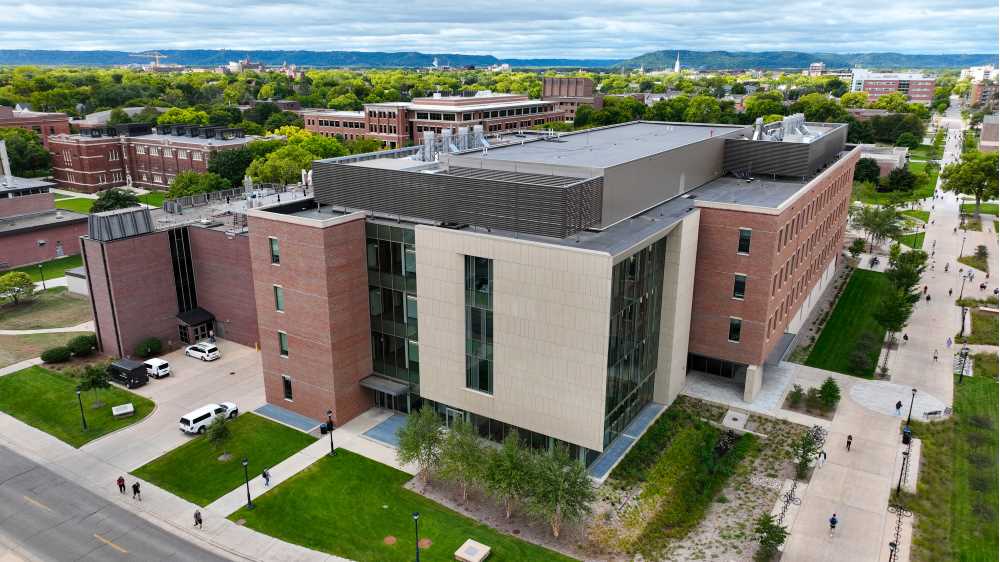
UWL’s new major in food and nutrition sciences will support the next generation of dietitians, nutritionists and food scientists in this fast-growing field.
A new major at UW-La Crosse will prepare students for careers in the fast-growing field of food and nutrition sciences.
Building on the success of UWL’s existing nutrition minor, the new major in food and nutrition sciences will expand learning and research opportunities in food science, food safety, food systems and more — while meeting a critical workforce development need in Wisconsin and beyond.
The major was approved by the UW System Board of Regents in June.
“The availability of nutritious foods is key to human health and wellness,” explain Lisa Kobs and Margaret Maher, both professors of biology, who are spearheading the new program. “As the global population continues to grow, food and healthcare systems will be increasingly challenged to meet demand for their services. As a food and nutrition sciences major, students will develop a broad understanding and set of skills related to food science, food systems and nutrition that will prepare them for multiple opportunities to contribute to these enduring challenges.”
The food and nutrition sciences major is interdisciplinary, incorporating courses from multiple departments and colleges across campus.
The 120-credit program consists of 34 credits of general education coursework, 22 credits of STEM foundation coursework, 41 credits of core and elective food and nutrition sciences-related coursework, and an additional 23 credits to fulfill degree requirements.
In developing the major, faculty met with industry leaders from organizations such as Kwik Trip and Organic Valley, which reinforced the need for skilled entry-level professionals in food science, food safety and food systems.
The Bureau of Labor Statistics projects faster-than-average job growth in this industry over the next decade. Projections show 7% growth for dietitians and nutritionists, with a 2023 median annual pay of $69,680, and 6% growth for food scientists, with a 2023 median annual pay of $76,400.
Kobs and Maher say UWL is well-equipped to support a major in food and nutrition sciences, in large part thanks to the success of UWL’s nutrition minor. The minor was implemented in 2007 and currently enrolls more than 300 students.
The new major, paired with a wide range of complementary electives, provides students the opportunity to dive deeper into the subject, while pursuing their own path.
“The College of Science & Health at UWL is already contributing to that pool of professionals and is uniquely positioned to expand that contribution in food and nutrition sciences,” Kobs and Maher say. “The electives for the food and nutrition sciences major will allow students to specialize in a narrower area of food and nutrition sciences, such as public health, food microbiology or food sustainability, and we expect the elective list will grow as new and existing faculty consider additional class offerings.”
Written by UW-La Crosse University Marketing & Communications
Link to original story: https://www.uwlax.edu/news/posts/food-and-nutrition-sciences/
